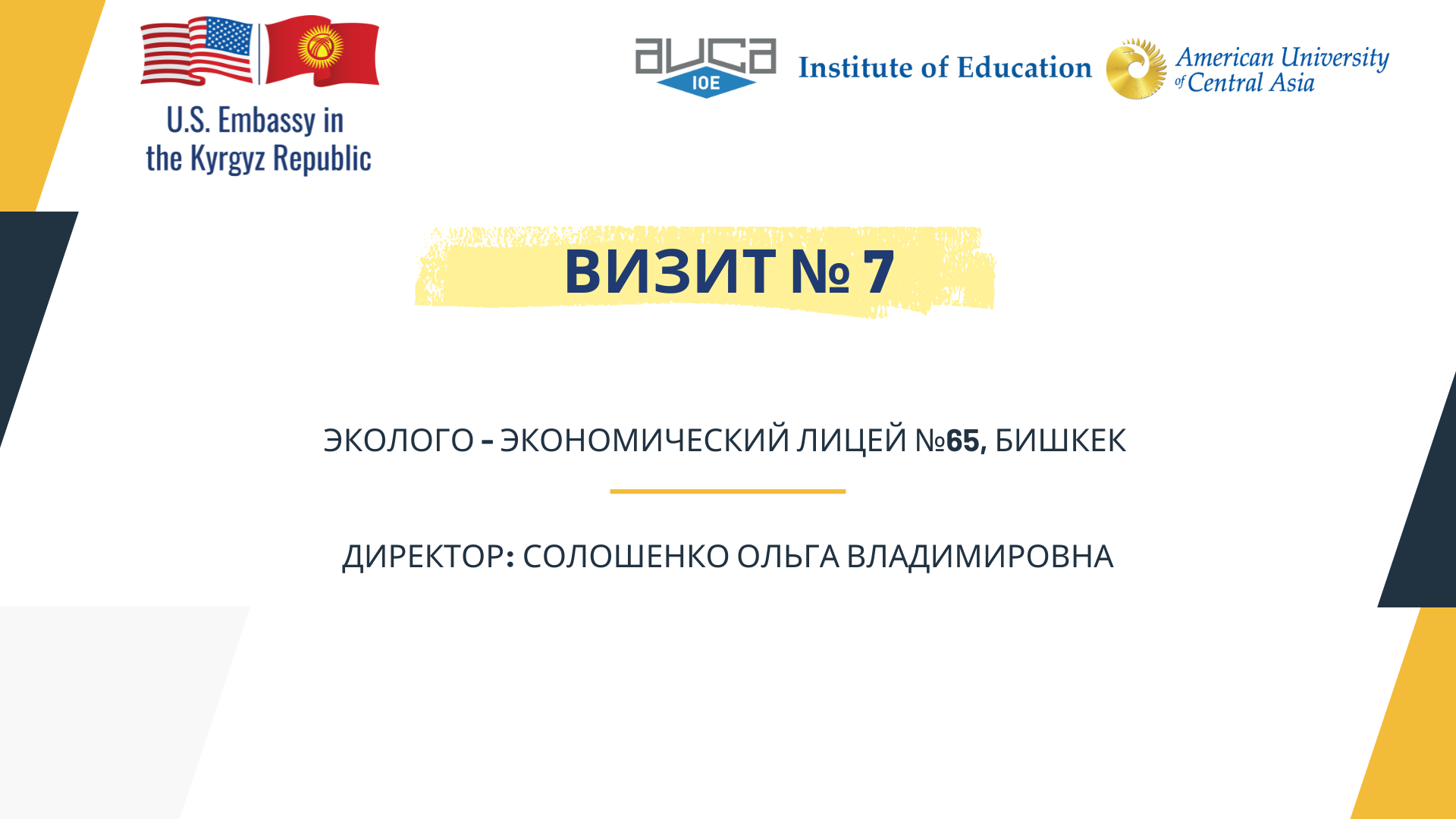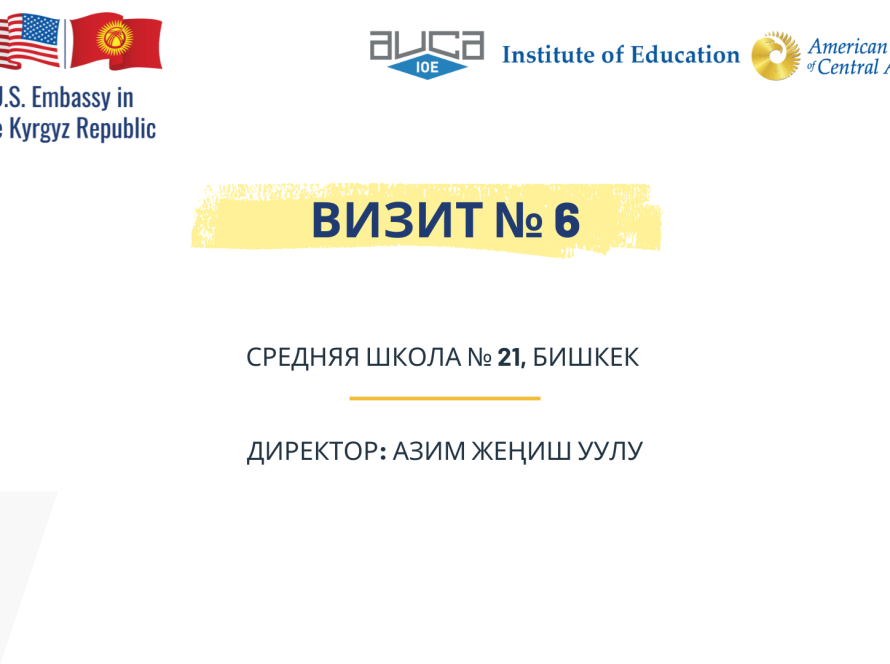Post-Visit Report: Insights from School Visits – Manifesting Learning and Collaborative Practices
Introduction
On February 28, 2025, Ecological-Economic Lyceum (EEL) No. 65 in Bishkek hosted the eighth reciprocal visit under the FORUM 2.0 project. School directors from various regions joined this exchange, including Elena Debelaya, Olga Soloshenko, and Dinara Almamataova. The event was coordinated by the FORUM Project Manager, Aigul Karimova, and supported by the entire EEL No. 65 community. The goal of the visit was to explore best practices, discuss pressing educational challenges, and further strengthen the professional network among public school leaders in Kyrgyzstan.
School Highlights
The visit began with a video presentation about the lyceum, followed by an extended tour that introduced participants to the school’s learning philosophy and physical environment. The lyceum showcased student-designed learning spaces, interactive hallway zones, and creative student-driven projects. Participants observed 4th-grade project defenses, interacted with student researchers, and witnessed vibrant extracurricular and academic programming.
The school’s guiding approach emphasizes sustainability, student autonomy, and a collaborative school culture. The administration’s commitment to reflective practice and learning analytics was particularly noted, as was the school’s effective integration of environmental and economic education across disciplines.
Discussion Highlights and Best Practices
Participants surfaced the following key insights and replicable practices:
Learning-Centered Physical Design: The school’s corridors and classrooms were organized into interactive zones with open-access whiteboards, peer project displays, and informal collaboration areas, fostering student agency.
Structured Project-Based Learning: Project work begins from early grades and is systematically integrated into the curriculum. Teachers and students engage in multi-year cycles of inquiry and public defense of learning products.
Strong Student-Teacher Relationships: The school climate was described as warm, purposeful, and student-focused. The consistent tone of respectful interaction between students and staff was highlighted as a leadership success.
Administrative Transparency and Vision: The leadership team presented multi-year analyses of student work and project outcomes, evidencing a culture of continuous improvement.
Interdisciplinary and Applied Learning: The lyceum leverages its ecological-economic orientation to promote relevant, real-world learning that connects academic content with societal needs.
Reflections from Participants
Visiting directors found the experience motivating and professionally enriching. One participant noted:
“The school is not only well-managed—it’s also alive. You can feel the care in every detail: from the hallways to the way students are encouraged to think for themselves.”
Another reflected that the visit helped reframe their own approach to space, student voice, and integrating interdisciplinary projects more meaningfully across grade levels.
Conclusion
The visit to EEL No. 65 underscored the transformative impact of thoughtful school design, sustained project-based learning, and a values-driven school culture. As FORUM 2.0 nears completion, this visit reaffirmed the project’s vision: public school directors can lead change when they are given the space to reflect, collaborate, and learn from one another. EEL No. 65 served as a model of what is possible—and inspired its peers to return home with renewed energy and practical insights.



